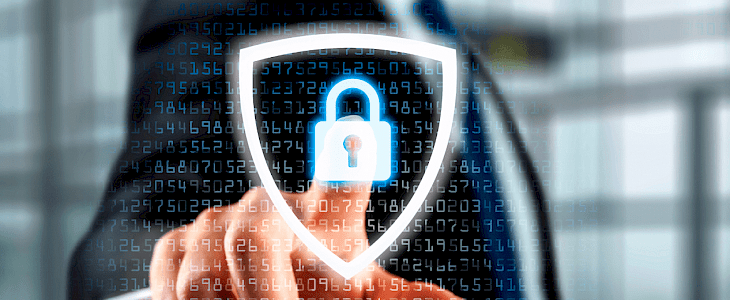
Anybody can become a victim of a security breach, even if they feel well-versed on the topic and take all the precautions they have been instructed to take. For this reason, it is crucial to prepare for the worst.
The good news is that you can still defend yourself. Prioritize the safety and privacy of your house. You wouldn't let ransomware encrypt your manuscript, or a banking virus steal your money, would you? Following these suggestions, you better protect yourself from potential threats in your online interactions.
Professionally and Sparingly Use Personal Information
Companies might require too much information via forms or signup processes. It is essential only to provide details necessary for using a service. For instance, a streaming account needs your payment info, but you don't need to reveal your physical address.
Update Your Antivirus Software After Installation
Antivirus software protects your computer from malicious programs, but that's only one of its many functions. Ransomware encrypts your data and holds it hostage, until you pay to decrypt it.
Although Trojan horse programs superficially resemble legitimate software, they steal sensitive data behind the scenes. This and other forms of malware can be thwarted by using an antivirus program.
Always upgrade to the most recent version of your operating system and your software. Having them around is like having another set of eyes watching your property. Using updated antivirus is essential as it will have more information on the latest malware signatures.
Activate Two-Factor Authentication
This is a phrase that will be repeated to you many times. Use two-factor or multi-factor authentication wherever possible to further protect your accounts. Even in the most extreme situation, it will be more demanding for someone to access your critical data if they can obtain your password, thanks to this additional verification mechanism.
Maintain Secure Web Habits
Avoid visiting risky places online, like unsafe websites, using HTTP instead of HTTPS. Cybercriminals utilize attractive offers and intriguing information as a lure. Thus, that might make users more eager to click on links or download files.
It only takes one click to reveal sensitive information or infect your computer with malware; the internet is full of such hidden dangers. By avoiding suspicious websites, ads, pop-ups, emails, or other content, you are bound to protect yourself.
Use a Virtual Private Network
Virtual Private Network, or VPN for short, is a tool to secure network connections when utilizing public networks. VPNs can encrypt your data and hide your location. Other parties will find it more challenging to monitor your internet activity and steal data.
Thus, a VPN download is highly recommended if you frequently access the internet over a public Wi-Fi network. Take the example of using a coffee shop's free Wi-Fi network. You are unaware of the security of the connection. Without your knowledge, another user on the network may begin snooping on the information being transmitted from your computer or mobile device.
The Importance of Using Strong Passwords
There is presently no method to avoid passwords, despite their being one of the largest security holes on the internet. Passwords are problematic because users select simple combinations that are easy to remember but simple for hackers to deduce. To thwart hackers, you should use complex passwords.
You could decide to utilize password management software to prevent forgetting several passwords. With at least 15 characters, a mix of letters, numbers, and special characters, and both distinct and complicated, a secure password combines both.
Buy Things from Trustworthy Online Stores
Cybercriminals target online shoppers because they are more likely to reveal financial information such as credit card numbers and bank account details. You should only send your information to websites with safe and encrypted connections.
According to research conducted by Boston University, a sure way to spot a secure website is to check whether or not its URL begins with HTTPS rather than just "HTTP," using "HTTPS," where S stands for "secure." A lock icon may also appear next to the URL bar to indicate that the page is secure.
Be Wary of Programs Installed
Another tip is carefully picking which programs to install on your devices. For instance, do not be eager to get a mobile game advertised via ads. Many such applications could be after your data. Furthermore, look for more private and secure alternatives when it comes to apps you use daily. That includes browsers, instant messaging apps, email providers, and more.
Conclusion
It doesn't take all that much work to make your gadgets, your online identity, and the things you do online more secure. Some of our suggestions for improving your online safety involve actions that require little more than just conventional wisdom. Suppose it is too difficult for hackers to compromise your information. In that case, there is a significant possibility that they will move on to another target that is simpler for them to infiltrate.





